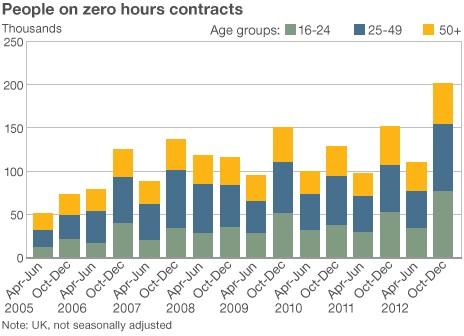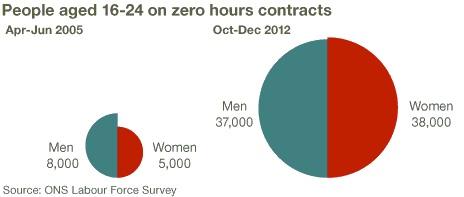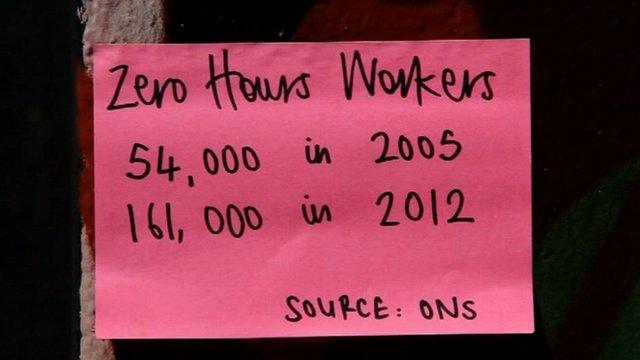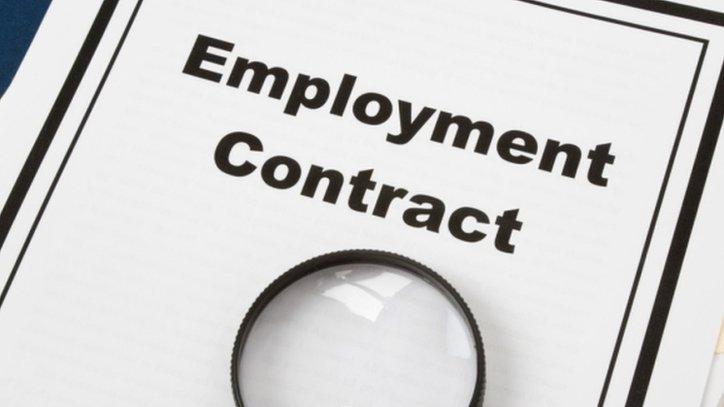People on zero-hours contracts paid less than others
- Published

People on zero-hours contracts are paid six pounds an hour less than other workers, according to research by a living standards charity.
The Resolution Foundation found that those on the contracts earn £9 on average an hour, compared to £15 for other workers.
The Labour Party say workers on zero-hours contracts are open to abuse from employers.
They are set to hold talks with businesses to discuss their concerns.
The government is already reviewing them and unions want them banned saying they can lead to exploitation.
The contracts do not guarantee shifts or work patterns and employees are expected to be available when they are needed.
Earlier this month a survey of 1,000 employers by the Chartered Institute of Personnel and Development indicated more than a million UK workers are on zero-hours contracts.
The total figure is four times the official estimate.
The research also found those aged between 18 and 24 are most likely to be employed this way.

Zero-hours contracts are found mostly in healthcare, education and hospitality
Companies who use zero-hours contracts say it is a way of employing young people who might otherwise be out of work.
In most cases employees are expected to be available for work but can legally turn down a shift if they don't need it.
"Zero-hours contracts do have some advantages," said Vidhya Alakeson at the Resolution Foundation, which studies the labour market.
"If you want to combine work with studying or childcare then you can juggle things around more easily.
"If you're trying to raise a young family and need a stable income, you can see your hours cut right down to zero without any notice and without any redundancy rights."
Figures seen by Radio 1 Newsbeat in May 2013 showed the number of 16 to 24-year-olds on zero-hours contracts had more than doubled since the start of the economic downturn.

The number of people in that age group on zero-hours contracts rose from 35,000 in 2008 to 76,000 in 2012.
One in every three zero-hours employees is under the age of 25.
"You can't live without worrying if you can pay your rent," said 22-year-old Jessica.
"It's all right for students or people who live at home but if you have to support yourself then you need security and a set wage every month."

The figures aren't seasonally adjusted
Other zero-hours workers say they often have shifts added, cancelled or changed at the last minute.
"I work for a major cinema chain and I'm on a zero hours contract," said 20-year-old Matt.
"I've never had an issue with it because I'm good at my job. Those who are not so good end up with fewer shifts, so it's a fair system."
Groups representing businesses claim that the rise of zero-hours contracts and part-time work has helped save jobs through tough economic times.
Neil Carberry at the CBI said: "It's zero-hours contracts and other forms of flexible working that mean there are half a million fewer unemployed people than there might otherwise have been."
Follow @BBCNewsbeat , externalon Twitter
- Published28 April 2013

- Published14 August 2012

- Published19 September 2012
